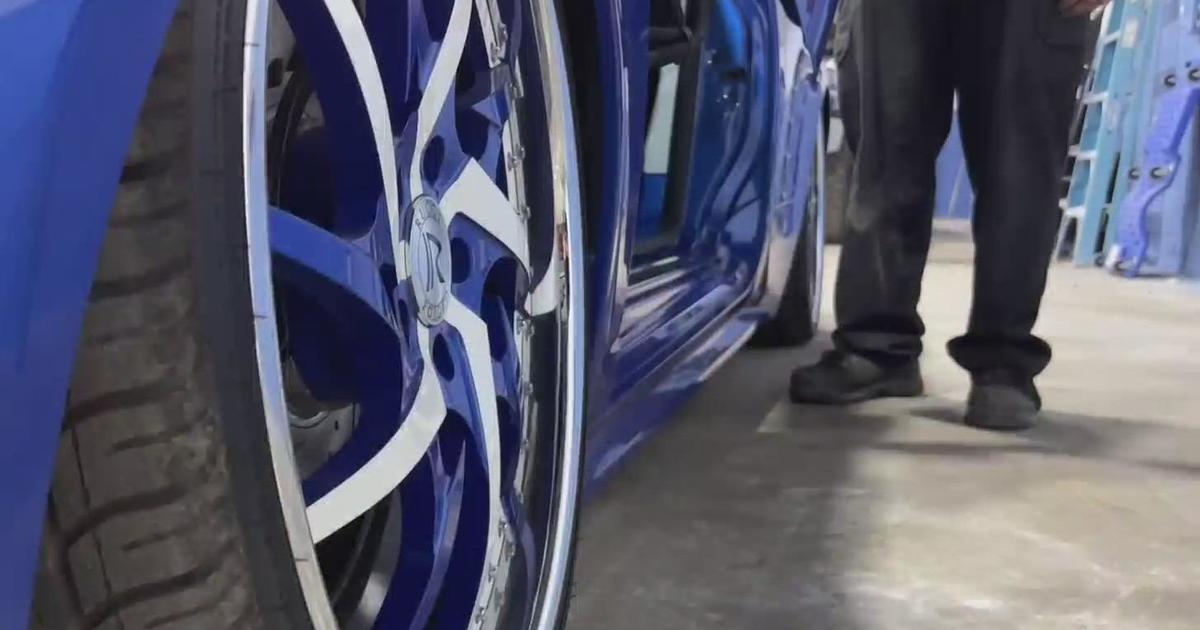It was with wonder and great interest that I read Monica Hesse’s April 11 Style column, “Tradwives, stay-at-home girlfriends and ‘a thing called ease.’” As the president of a college for women, I found myself wondering why so many people are entranced by the spectacle of young women making a highly questionable choice — though it’s absolutely their choice to make — instead of lifting up the many women who are, in fact, striving to change their lives by getting an education and tackling the travails of the world.
Washington, D.C
Opinion | Tradwives, meet trad guys

The only mentions of higher education came in an anecdote about a teenage girl who would rather husband-hunt than go to college and Ms. Hesse’s obligatory dig about the cost of tuition: “If college weren’t so ghastly expensive here, maybe that one lady’s daughter wouldn’t be so keen on the patriarchy as a route to leisure that bypasses the long, uphill road to financial independence.” But there is no better road to intellectual freedom and ease of life than education.
U.S. women’s colleges know and address this every day. We serve young women who are eager to lead despite messages that they lack the value or the resources to be successful. More than 93 percent of our students receive financial aid to go to college, and many women’s colleges serve the most financially vulnerable young people in the nation. Yet we endeavor to equip young women to pursue their educational ambitions in support of a more just world.
To be clear: I don’t object to the suggestion that what many young women — or really, all people — want today is more leisure or a sense of ease. I and my students would like a nap, too. What keeps us awake? A deep sense of purpose. We recognize that the same world that prevents “ease” needs us to change it; that the miseries women face in the world will not go away while we rest. We know we have a purpose in this world and that this purpose is to fashion a better experience for us all. Women don’t have to compromise their own sense of self to achieve that.
Mary Dana Hinton, Roanoke
The writer is president of Hollins University.
Was it intentional irony that the April 11 Style section paired “Nick Adams wants you to man up,” a profile of the misogynistic provocateur, with Monica Hesse’s column on the appeal and pitfalls of the tradwife lifestyle? Perfect! Now there’s a real GOP platform.
Pamela Kincheloe, Manassas
Just when I thought there was no way The Post could foist Donald Trump on me more often, the April 11 Style section led with a profile of Nick Adams, an off-putting Trump surrogate.
As the writer eventually pointed out, there are genuine problems facing men and boys but women coming for their testicles isn’t one of them. How ironic and insulting that while women are the ones under policy assaults such as the resurrection of Arizona’s ancient ban on abortion, The Post chose to devote space to another con man tapping into anger.
As a longtime baseball observer and fan, I read Chelsea Janes’s April 11 Sports analysis, “No easy fix after rash of injuries to pitchers,” with interest.
With the increasing emphasis on pitch velocity, spin rates and other measures of force, Major League Baseball teams are effectively “killing their young.” Potentially great pitching careers are being sacrificed at the altar of money as pitchers try to master throws such as the sweeper.
As a result, professional baseball risks becoming a niche sport like thoroughbred racing, in which horses are driven to the point of exhaustion and ghastly injury for the entertainment of gamblers, with whom Major League Baseball and other professional sports leagues have aligned themselves. Sadly, America’s pastime has become a sign of the times.
Arthur Edward Schwartz, Arlington
Golf is not ‘sustainable’
I had to laugh ruefully when I read the word “sustainable” in reference to the sport of golf in the April 10 front-page article “On eve of Masters, chasm still divides golf.” The fragile balance between the competing golf tours might be sustainable. But when it comes to the environment, golf is anything but.
Acres of land are cleared of forests or fields to be turned into grassy lawns that are ecological dead zones. Swaths of fairways and greens sequester little carbon and fail to support the food chain or pollinators. Courses require massive quantities of water, competing with people and agriculture for scarce resources even in the most drought-prone parts of the world. Polluting and toxic weed killers and chemical fertilizers flow into groundwater and streams, endangering wildlife and people. The carbon footprint for manicuring golf courses with armies of gas-powered equipment is huge.
Golfers say they enjoy “being in nature,” but that’s like comparing a water park wave pool to the ocean. About the only thing sustainable about a golf course might be an electric cart — or maybe an organic beer.
I read with dismay the April 12 Metro article “Circulator bus service might end in March 2025.”
Our family has resided in D.C. for decades and became aware of the services of the Circulator bus system just two years ago. The atmosphere on the bus is festive and friendly, in large part because of the drivers and the excited tourists who ride it. It provides an invaluable service to tourists and residents alike who want to get around the National Mall at a reasonable price or to Georgetown conveniently from Union Station.
Don’t shut down routes, raise prices or eliminate the Circulator altogether. Just advertise it more. So many residents are unaware of its routes or their convenience. Get fliers out to all the hotels that tourists frequent. Get information to the public in general. People love a bargain, and at $1 per ride, the Circulator is the best bargain in D.C.
Kathleen Wood, Washington
Tax rich D.C. residents like me
Taxes support thriving communities where people want to live. They fund quality schools and reliable public transportation, in addition to providing food and shelter for people who have hit hard times. Right now, D.C. faces major budget pressures that jeopardize these vital programs and services. But lawmakers can meet this moment by raising taxes on wealthy people, including me.
I came to the city more than a decade ago as a student at George Washington University (Raise High!) and fell in love with D.C. I enjoy a car-free life with convenient access to friends, stores and cultural activities. D.C. Minyan provides a robust Jewish community. Playing softball on the National Mall never gets old. I can’t imagine living anywhere else. But as a frequent cheerleader for D.C., I have never even considered discussing my relatively low tax burden as a draw to encourage friends and family to move here.
My financial situation is not out of the ordinary for White residents of D.C. An Urban Institute study found that as of 2016, White households in D.C. had a net worth 81 times greater than that of Black households and 22 times that of Latinx households.
Our tax system does little to correct the historic injustices that have contributed to this wealth inequality. Instead, tax preferences and loopholes protect and further concentrate wealth.
For example, D.C.’s property tax system uses a single rate for residences, meaning I pay the same property tax rate as someone who owns a small studio far away from public transit and other amenities.
And Mayor Muriel E. Bowser (D) has now proposed an increase to the sales tax, which takes a larger percentage of income from low- and middle-income earners than high-income earners. Combined with Ms. Bowser’s proposal to halt the planned increase to D.C.’s earned-income tax credit, which helps people with low incomes keep more of what they earn, this would raise the effective tax rate on D.C. residents with the lowest incomes relative to the current baseline.
Raise taxes on me and other wealthy residents instead. I say this with confidence that the marginally higher taxes I would pay would not materially affect my quality of life.
But the investments the District could make in public services with a little more of my tax money would be life-changing for others. By taxing D.C.’s concentrated wealth, the D.C. Council can ensure that child-care workers are paid fairly, rental assistance programs are fully funded and transformative initiatives such as the earned-income tax credit aren’t gutted. I can afford to pay more in taxes so everyone can have their basic needs met.
We all agree D.C. faces major budget pressures and needs more revenue, so let’s find a way to raise it. Why not increase the tax rate on capital gains — profits from selling assets such as stocks that overwhelmingly flow to the top 1 percent? And why not increase taxes on homes valued at more than $1.5 million, instead of taxing them at the same rate as lower-value homes?
Before being disrupted by business lobbyists, D.C.’s Tax Revision Commission laid out other proposals to raise revenue that, unlike the mayor’s proposals, wouldn’t put the burden on D.C. residents who are already struggling. We all contribute to the strength of D.C.’s economy, but only a few households see the most benefits. The D.C. Council should make the wealthy pay more, so D.C. can be a place where everyone can share in the growth and enjoy a good life.
Moshe Pasternak, Washington

Washington, D.C
Grand Junction Mayor Anna Stout attends conference in Washington D.C.

GRAND JUNCTION, Colo. (KKCO) – Mayor Anna Stout of Grand Junction and around 50 mayors from across the country met with members of Congress in Washington D.C. These mayors are from the U.S. Conference of Mayors, and they took part in a two-day meeting to advocate for federal solutions to the housing and homelessness crisis affecting cities across the county.
Each mayor brought their perspective and experience on how their communities have dealt with the homelessness crisis. Elected representatives and White House officials shared resources and future federal budget insights to help city leaders with funding and programs. The three priorities that the mayoral delegation focused were on helping veterans qualify for vouchers and assistance, increasing funding for housing vouchers, and increasing the cap for project-based vouchers.
Under Mayor Stout, the City of Grand Junction has allocated over 13 million dollars to housing and homelessness projects in the past two years, and she told us that there is more work to do and much more resources are needed. “…it’s almost like being tasked with building a house but only given a hammer and nails. We need more tools, and we need more funding.”
Scott Beilfuss, an outspoken houselessness advocate and Grand Junction City Council member believes the city is not moving fast enough. “…there are some more things that I believe we could be doing here locally… …the focus of what we can do with the money we have, is not moving longer, quick enough for me.”
Copyright 2024 KKCO. All rights reserved.
Washington, D.C
Washington DC universities join Palestine student encampment on GW’s campus

Washington, DC — On April 25, at 5 a.m., students from Students for Justice in Palestine (SJP) chapters from multiple DC universities took to George Washington University’s campus and started a Washington DC student encampment for Palestine.
George Washington University has been criticized for repressing its Palestinian students and their allies on campus while defending both on and off-campus Zionists. The university called the Metropolitan Police Department (MPD) to intimidate the students and start the sweep of the encampment. The MPD then sent out a notice to all students ordering their dispersal at 7 p.m.. In response, the organizers in DMV (DC, Maryland, Virginia) SJP made a call for increased community mobilization to stave off the police. Within a few hours, the DC community mobilized to support the encampment in the thousands. At its peak, around 2000 people were on campus at the event, chanting and supporting the students. University faculty and alumni from multiple DC universities formed a barrier between students and the police.
Because of this mass mobilization effort, 7 p.m. came and went; the police did not follow through on their dispersal order, instead waiting until late in the evening, when people had started to go home, to try to sweep the encampment.
As of April 26, the encampment is still standing, and the community continues to rally around the four demands of the students, which are for the university to one, disclose how their endowment is spent; two, divest from all companies and partnerships who participate in the colonization and ethnic cleansing of the Palestinian people; three, defend Palestine activism which has been repressed and censored, and four, declare the Zionist occupation, colonization and ethnic cleansing of the Palestinian people and the U.S.-Israeli genocide on Gaza illegal and indefensible.
There were many community organizations present, participating in teach-ins and protests, including the Palestinian Youth Movement, Anakbayan DC, the DC Alliance Against Racist and Political Repression (DCAARPR), and many more.
A member of DCAARPR stated in their speech, “We are engaged in an act of rebellion. This moment of struggle on GW’s campus is a powerful thread in the worldwide struggle against Zionism and, by extension, American imperialism. The student movement has always been at the forefront of anti-imperialist struggles, and who has always been called as the first line of defense against them? The police!” This was followed by the masses of people chanting in unison, “MPD, KKK, IOF, they’re all the same!”.
The students continue to call for community mobilization and support in the D.C. area.
#WashingtonDC #StudentMovement #SDS #AntiWarMovement #International #MiddleEast #Palestine #DCAARPR #PYM #Anakbayan #GWU
Washington, D.C
Wiseguy Pizza opens in Washington D.C. neighborhood

Thompson Restaurants has opened its seventh Wiseguy Pizza. It is located in a residential neighborhood of Dupont Circle in Washington, D.C., according to a press release.
The pizza brand is known for its New York-style pizza. Wiseguy also has a rotating menu of specials which includes vegan and vegetarian offerings.
“We are ecstatic to introduce our award-winning pizza slices and pies to the vibrant Dupont Circle neighborhood,” Alex Berentzen, COO of Thompson Hospitality, said in the release. “We are very much looking forward to the Dupont community experiencing Wiseguy’s renowned New York-style pizza and exceptional quality, a hallmark of our presence across the DMV region.”
The Dupont Circle Wiseguy Pizza features dine-in and carryout services. It has a small dining room and an extensive patio.
Thompson Restaurants owns and operates15 brands with more than 70 locations.
-

 World1 week ago
World1 week agoShipping firms plead for UN help amid escalating Middle East conflict
-

 Politics1 week ago
Politics1 week agoICE chief says this foreign adversary isn’t taking back its illegal immigrants
-

 Politics1 week ago
Politics1 week ago'Nothing more backwards' than US funding Ukraine border security but not our own, conservatives say
-

 News1 week ago
News1 week agoThe San Francisco Zoo will receive a pair of pandas from China
-

 World1 week ago
World1 week agoTwo Mexican mayoral contenders found dead on same day
-

 World1 week ago
World1 week agoBrussels, my love? The EU single market is not sexy enough for voters
-

 Politics1 week ago
Politics1 week agoRepublican aims to break decades long Senate election losing streak in this blue state
-

 World1 week ago
World1 week agoEU sanctions extremist Israeli settlers over violence in the West Bank




















